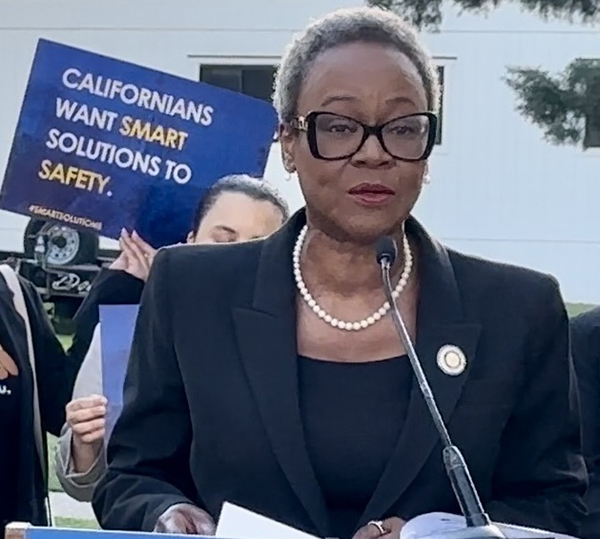By Emilie St. John
Contributing Writer
INGLEWOOD — With the year’s legislative session over, Assemblywoman Tina McKinnor has 11 bills headed to the desk of Gov. Gavin Newsom for signature.
“When you have clear progressive values, prioritize the needs of people and and have an amazing team, this is what happens,” McKinnor said in a statement. “I am so proud of these 11 bills that passed the California Legislature and are on their way to Governor Newsom. Our progressive movement is just getting started.”
McKinnor’s bills address faith-based organizations’ ability to build affordable housing on their land, student-athlete safety, prescription drug flavoring for children, microfiber filters in washing machines and the one closest to her heart — Assembly Bill 1 — which authorizes the unionization of legislative staff.
McKinnor is a former staffer having worked in the offices of state Sen. Steve Bradford and former Assemblywoman Autumn Burke, prior to being elected to complete the term of Burke in 2022, and said the bill will affect nearly 2,000 workers in the state’s Capitol.
“The passage of AB 1 is extremely personal for me,” McKinnor said. “As a former legislative staffer myself and an original signer of the ‘We Said Enough’ letter that started the #MeToo movement, I know what a challenging work environment the California Legislature can be.
“AB 1 will give non-supervisorial legislative staff a needed and essential voice to build a safe and inclusive workplace. I welcome the legislative staff’s partnership in the years ahead to build a work culture that attracts and retains California’s best to build a noble career in public service.”
AB 1 passed by a 61-5 vote in the Assembly, which followed the state Senate’s 30-3 approval of the measure Sept. 12, which would give employees the choice to form a union and collectively bargain for wages, benefits and working conditions, regardless of political affiliation.
Under AB 1, the Senate Rules Committee, the Assembly Rules Committee or the Joint Legislative Rules Committee (the administrative offices of the Legislature) would establish procedures to implement the collective bargaining process with the employees’ chosen union. Wages and benefits would be negotiated within the budgetary restrictions approved by voters through Proposition 140.
While the state Legislature commonly considers laws affecting public and private employees in California, the Legislature itself remains the only branch of state government that does not allow its employees to have the choice to unionize. Legislative staff serve as at-will employees that are exempt from state civil service laws and denied the right to collectively bargain for wages, benefits and working conditions.
This has led to generations of legislative employees being subject to low and inequitable pay and subject to hostile work environments with no recourse other than being forced to seek employment outside of the Legislature.
Emilie St. John is a freelance journalist covering the areas of Carson, Compton, Inglewood and Willowbrook. Send tips to her at emiliesaintjohn@gmail.com.











